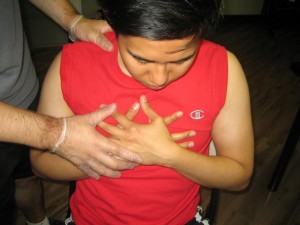Overview
Stroke has symptoms that will appear suddenly. First, you may feel ill, pale or unwell. You may have complaints of headaches and dizziness. There are varied symptoms of stroke that are visible on human beings. Some of these symptoms:

- Sudden numbness, feeling weak and paralysis down
- Appearing confused and low concentration
- Problems with the speech or trouble hearing what is said
- Difficulties in swallowing
- Visual problems
- Difficulties in walking
- Falling suddenly
- Difficulties in coordinating their movements and balance.
- Loss of consciousness that depends on the part of the brain affected or the size of stroke that has affected you.
Stroke Foundations found in Australia recommends F.A.S.T test to check the symptoms caused be the stroke. The abbreviations F.A.S.T represents:
Face: Is one side of your face is drooping or can smile?
Arms: Can you lift your arms above your head without drifting down?
Speech: Can you speak audibly and another person to understand you?
Time: If you notice either of these signs, call an ambulance immediately.
Risk Factors for Stroke
The older you become, the higher the risks of getting a stroke. There is a significant number of the young and middle aged who has strokes. Men are more likely to get a stroke than women. People who had suffered a stroke are more prone to have another attack. There are families with a history of having a stroke or suffers from different types of cardiovascular diseases like heart attack. Below are some risk factors for ischemic stroke:
- High blood pressure
- Irregular heartbeat
- Smoking cigarettes
- Excessive consumption of alcohol
- Overweight or obese
- High cholesterol
- Poor diet
- Inadequate physical activity
Stroke is a disease caused by the failure of the blood vessels and hence shares many risks with coronary vascular diseases that affect the blood vessels in the heart.
These are some risk factors for hemorrhagic stroke:
- High blood pressure
- Smoking
- Taking of anticoagulant medicines
- Bleeding disorder
- Brain or head injury
There ways which you can prevent yourself from being attacked by a stroke. Your lifestyle will help you reduce the risks you expose yourself to and prevent stroke which is a deadly disease. Some of these ways are:
- Eating a healthy diet that is food rich in vegetables and fruits, fats and low amounts of salt.
- If you are overweight, try and lose weight.
- Reducing your daily alcohol consumption up to two drinks in a day
- Having enough physical activities daily. At least 30 minutes most days of the week.
- Stop smoking completely
Your doctor can intervene and assist you achieve these ways and avoid risks of stroke or being affected a second time.